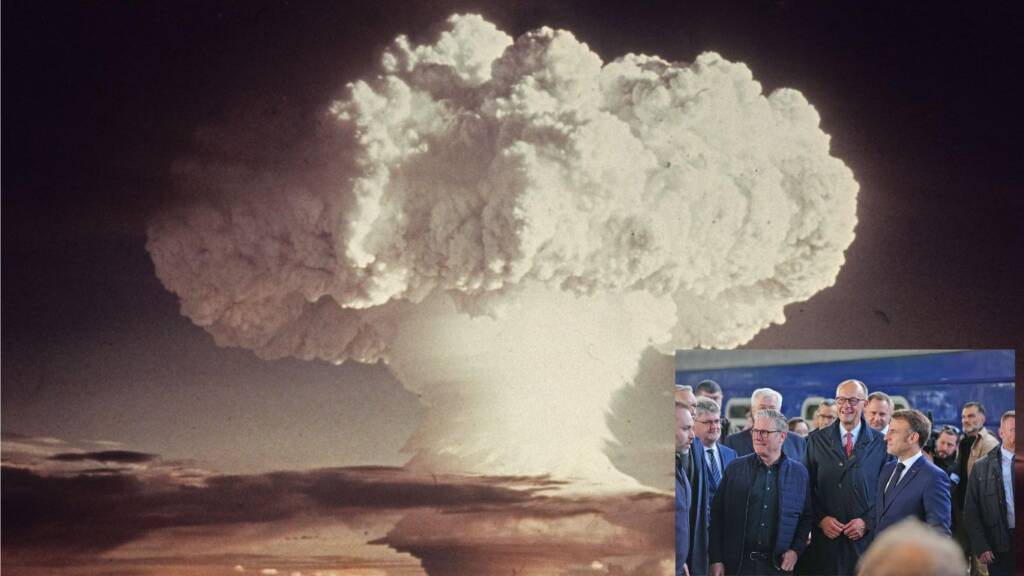U.S. President Donald Trump has once again ignited serious concerns across Europe—this time over nuclear security. For nearly 80 years, Europe has relied on America’s nuclear protection. But now, with Trump hinting at reduced U.S. support for NATO, European leaders are reconsidering their nuclear strategies.
Poland Seeks French Help, But Wants More Say
Polish Prime Minister Donald Tusk has called for stronger military capabilities in light of shifting American policies. While he didn’t openly call for Poland to get its nuclear weapons, he did urge deeper cooperation with France, which has its nuclear arsenal.
Tusk wants clarity on how much control Poland and other allies would have in case French nuclear weapons were used to protect them. He said:
“It would be worth making sure it would be in our hands to make the final decision.”
France: Nuclear Power, But Jealously Sovereign
France has always insisted that its nuclear weapons are under complete national control. President Emmanuel Macron emphasized this again, calling the decision to use them “a sovereign issue from beginning to end.”
France has never joined NATO’s Nuclear Planning Group and is reluctant to share launch authority or deploy its weapons outside its territory. Still, Macron has invited some allies to observe France’s nuclear exercises, a small step toward cooperation.
Britain’s Nukes: Powerful But Dependent
The UK has nuclear weapons but depends heavily on the U.S. for technology and support. Its Trident missiles are leased from the U.S., and British submarines use American-designed launch systems. If U.S. support ends, Britain’s future nuclear plans may become unworkable.
One idea being floated is renewing cooperation between the UK and France, something both countries explored in the past but never fully committed to.
Old Ideas Return: A European Nuclear Force?
There are echoes of Cold War-era proposals like a Multilateral Force, where NATO countries would jointly manage nuclear weapons. But such ideas face legal obstacles and strong resistance, especially from France.
Some suggest France could publicly extend its nuclear protection under EU treaties like Article 42.7 of the Lisbon Treaty, which talks about mutual defense. But again, this would be mostly symbolic unless backed by clear plans and military integration.
Aerial Exercises and Symbolic Moves
France already conducts nuclear bombing exercises called “Poker” four times a year. Recently, France allowed allies like Italy and Germany to take part in support roles such as refueling. This is seen as a small but important sign of solidarity.
Experts have suggested France could:
- Deploy nuclear-capable jets to Eastern Europe without actual bombs
- Station nuclear missiles in Germany
- Create a European nuclear naval task force
But all of this would require major political will and public support, which currently appear lacking.
A Shrinking Umbrella, A Rising Crisis?
Analysts say that without America, Europe’s current nuclear capabilities are not enough to replace the U.S. nuclear umbrella. France and the UK simply don’t have the size or reach of America’s arsenal.
And legal commitments, like the Nuclear Non-Proliferation Treaty (NPT), prevent countries like Poland or Germany from building their bombs unless they leave the treaty—something that would cause a global uproar.
Uncertain Times Ahead
Trump’s comments have stirred the biggest nuclear debate in Europe since the 1950s. While leaders like Macron and Tusk are starting conversations, there’s no clear path forward.
As one French analyst put it: “There are many ideas, but we lack French political leadership.”
With rising threats from Russia and uncertainty from the U.S., Europe may soon face tough choices about its nuclear future.
